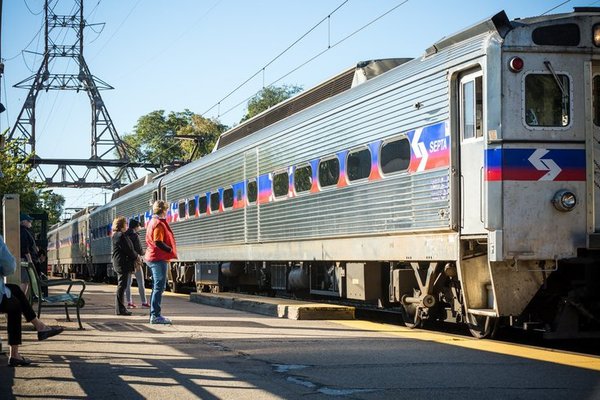SEPTA released its schedule Tuesday to reinstate parking fees at its 96 surface lots and three garages, ending a four-year break that gave Regional Rail riders free parking. The fees will return in phases to all lots between Sept. 23 and Nov. 15, and they will be collected using a new mobile payment system that replaces coin slot boxes.
SEPTA paused parking fees at its lots at the start of the COVID-19 pandemic and extended the reprieve as an enticement to rebuild lagging ridership on Regional Rail. The new fee at SEPTA's surface lots will double to $2 per day. Parking at the three garages — Frankford Transportation Center, Norristown Transportation Center and Lansdale Station — will be $4 per day. Parking will remain free at all lots on weekends and major holidays.
MORE: Part of Master Street to be renamed for Philly native actress Erika Alexander
Through the end of June, Regional Rail ridership had returned to 66% of its pre-pandemic level — an increase of 14% compared with June 2023. Systemwide, SEPTA's ridership at the end of June was 75% of pre-pandemic ridership, the highest it has been since early 2020.
SEPTA announced it would resume parking fees in June after awarding a $12.3 million contract to Flowbird America Inc., the company that developed the new payment system.
All surface lots and garages will get new payment stations that accept credit/debit cards and coins. Mobile payment options also will be available by text message or through a dedicated mobile app. Payment instructions will be posted at all stations and SEPTA staff will be available to assist riders who need help.
Enforcement officers will monitor the parking lots using vehicle-mounted cameras to read license plates. Cars that are parked illegally will be issued warnings and violation notices. SEPTA officials said the parking fees will be used to offset maintenance costs at the lots and garages.
Last month, Pennsylvania lawmakers passed a budget that includes an extra $51 million for SEPTA. The authority is facing a $240 million budget shortfall that has been anticipated with the end of federal support provided during the pandemic.
As transit advocates push to gain more funding, SEPTA has sought other methods to generate revenue in the past few years, including selling naming rights to more of its stations testing taller gates at its stations to prevent fare evasion.

